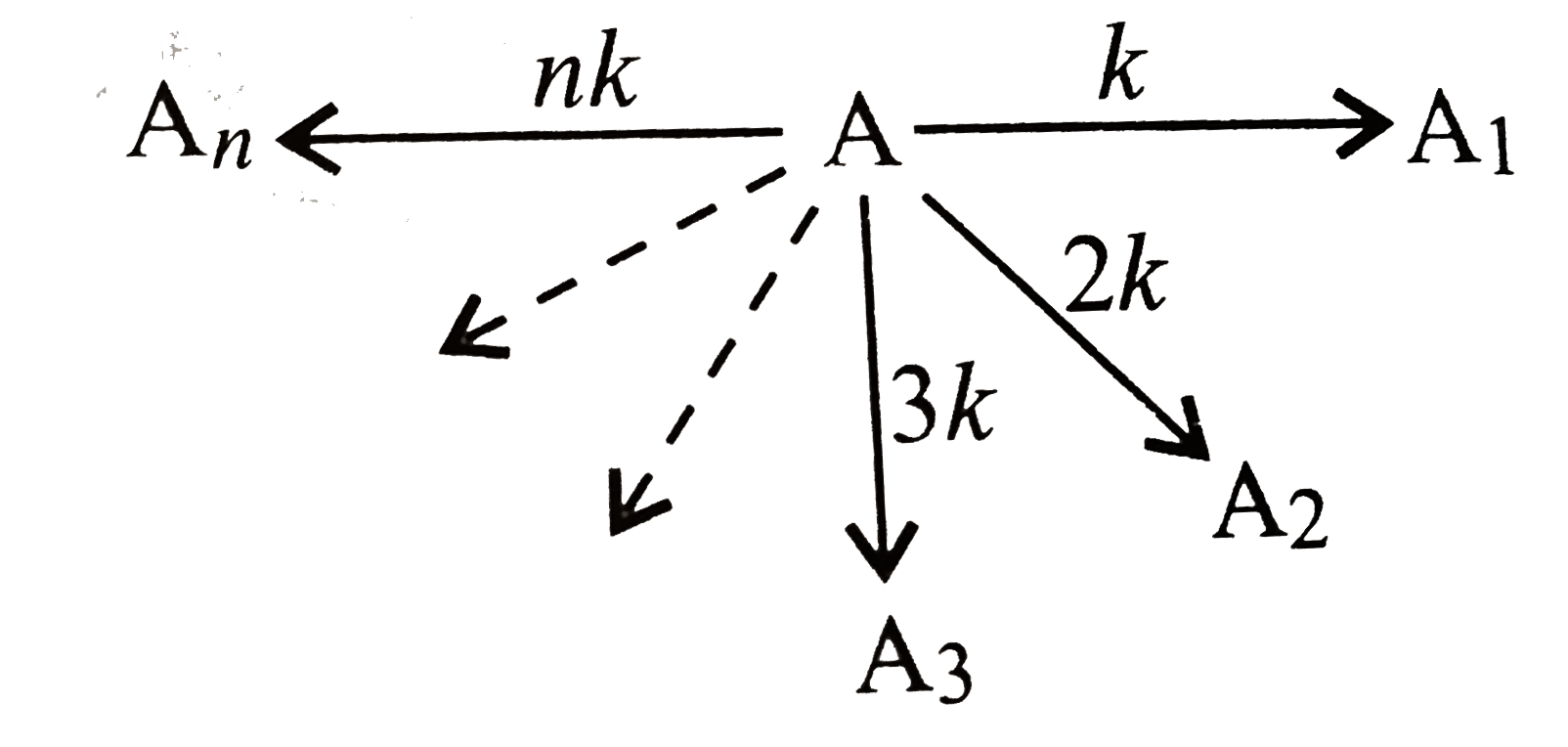In the reaction; A+2B→3C+D which of the following expressions does not describe changes in the concentration of various species as a function of time?
(A) d[c]dt=−3d[A]dt
(B) 3d[D]dt=d[C]dt
(C) 3d[B]dt=−2d[C]dt
(D) 2d[B]dt=d[A]dt
{d[C]/dt}=-{3d[A]/dt}
{3d[D]/dt}={d[C]/dt}
{3d[B]/dt}=-{2d[C]/dt}
{2d[B]/dt}={d[A]/dt}
The correct Answer is:D
Step by step video, text & image solution for In the reaction; A+2B →3C+D which of the following expressions does not describe changes in the concentration of various species as a function of time? (A) (d[c])/dt = -3(d[A])/dt (B) 3 (d[D])/dt=(d[C])/dt (C) 3 (d[B])/dt=-2 (d[C])/dt (D) 2(d[B])/dt=(d[A])/dt by Chemistry experts to help you in doubts & scoring excellent marks in Class 12 exams.
Topper's Solved these Questions
- BOOK - MOTIONCHAPTER - Chemical KineticsEXERCISE - Exercise -1 (Zero order reaction, 1st order reaction , 2nd order reaction & nth order reaction)11videos
Chemical Kinetics
- BOOK - MOTIONCHAPTER - Chemical KineticsEXERCISE - Exercise -1 (Experimental Method to calculate order)5videos
Chemical Kinetics
- BOOK - MOTIONCHAPTER - Chemical KineticsEXERCISE - SOLVED EXAMPLE (SUBJECTIVE)24videos
Chemical Kinetics
- BOOK - MOTIONCHAPTER - CHEMICAL EQUILIBRIUMEXERCISE - Exercise - 420videos
CHEMICAL EQUILIBRIUM
- BOOK - MOTIONCHAPTER - CLASSROOM PROBLEMS EXERCISE - Electrochemistry22videos
CLASSROOM PROBLEMS
Similar Questions
Knowledge Check
- Question 1 - Select One
The rate of a reaction is expressed in different ways as follows
+12d[C]dt=−15d[D]dt=+13d[A]dt=−d[B]dt
The reaction isA4A+B→2C+3DBB+5D→3A+2CC4A+2B→2CDB+12D→4A+2C - Question 2 - Select One
The rate of a reaction is expressed in different ways as follows:
+12d[C]dt=−13d[D]dt=+14d[A]dt=−d[B]dt
the reaction isA4A+B→2C+3DBB+3D→4A+2CCA+B→C+DDB+D→A+C - Question 3 - Select One or More
The rate of reaction for certain reaction is expressed as :
13d[A]dt=−12d[B]dt=−d[C]dt
The reaction isA3A→2B+CB2B→3A+CC2B+C→3AD3A+2B→C
5Br−(aq)+BrO−3(aq)+6H+(aq)→3Br2(aq)+3H2O(l) which of the following is incorrect regarding the rate of the reaction?
(A) Rate= -d[Br−]/dt
(B) Rate =-d[BrO−3]/dt
(C) -d[Br−]/dt =(5)/(3) d[Br2]/dt
(D) -d[BrO−3]/dt = (1)/(3) d[Br2]/dtView SolutionThe rate of reaction of certain reaction is expressed as :
13d[A]dt=−12d[B]dt=−d[C]dt
The reaction is :View SolutionThe rate of the reaction may be expressed by the following different ways .
12d[A]dt=−13d[B]dt=−d[C]dt
reaction isView SolutionThe rate of reaction for certain reaction is expressed as :13d[A]dt=−12d[B]dt=−d[C]dt The reaction is:
View SolutionFor a reaction A+3B→P, Rate = −d[A]dt ,the expression for the rate of reaction in terms of change in the concentration of B,−d[B]dt will be :
View Solution


